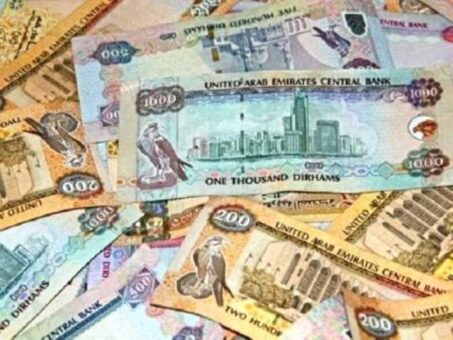KARACHI: Prime Minister Shehbaz Sharif has assured business community of taking favorable measures related to CNIC requirement will be taken in the budget 2022-2023.
A high-level delegation of the Karachi Chamber of Commerce and Industry (KCCI) led by Chairman Businessmen Group (BMG) Zubair Motiwala held meetings with Prime Minister Shehbaz Sharif and Federal Minister for Finance and Revenue Miftah Ismail in Islamabad to discuss the overall economic challenges, budgetary measures for fiscal year 2022-2023, taxation policies and the problems being suffered by the business and industrial community of the country.
READ MORE: New tax measures likely in budget 2022-2023
The delegation, which also comprised of Vice Chairman BMG Jawed Bilwani, President KCCI Muhammad Idrees, Former Senior Vice President Saqib Goodluck, Former Vice President Shahid Ismail, President Site Association of Industry Abdul Rasheed, President North Karachi Association of Trade and Industry Faisal Moiz Khan and President Site Superhighway Association of Trade and Industry Aamir Hassan Lari, highlighted the following major points:
KCCI delegation requested the Prime Minister that 17.5 percent Sales Tax on Solar Panels must be withdrawn at the earliest as committed by the Prime Minister at a meeting held at CM House Sindh during his last visit to Karachi. The Prime Minister and Finance Minister assured that it will be withdrawn next week.
READ MORE: Pakistan Budget 2022-2023 – estimates
Matter of Indenting Commission also came under discussion with a humble request by KCCI delegation that indenting commission may please be declared as export proceeds.
Moreover, it was further brought into the limelight that the local manufacturers have the capacity of producing Fiber Optic Cables therefore, the government must take measures to stop the imports of fiber optic cables so that the local manufacturers could be encouraged to enhance their production capacity which would certainly help in saving substantial foreign reserves being wasted on the imports of fiber optic cables.
KCCI delegation also advised Prime Minister and Finance Minister to issues directives for withdrawal of Sales Tax imposed on LED bulbs and its parts so that energy conservation could be promoted all over the country which was badly needed as the countrymen were currently going through prolonged load shedding for many hours every day due to severe energy crises.
READ MORE: Compliance cost much higher for corporatization: PSX
KCCI delegation also expressed deep concerns over delays in release of Drawback of Local Taxes and Levies (DLTL) claims of the exporters which have remained stuck up since long. In response, the Prime Minister promised to disburse the same in the days to come.
KCCI delegation also sought Prime Minister’s assistance in dealing with the unjust imposition of 17 percent Sales Tax imposed on cattle feed made from the agricultural waste. As it is purely agricultural waste used as animal feed for livestock farming and milking, hence sales tax imposed must be withdrawn in the Federal Budget 2022-23. Prime Minister and Finance Minister, while agreeing to KCCI’s viewpoint, assured that ST imposed on cattle feed will also be withdrawn.
KCCI delegation also advocated that the commercial importers of polyester yarn may please be allowed to declare their payment of sales tax and other taxes under Final Tax Regime (FTR) which was also agreed with an assurance that the commercial importers will be treated under FTR.
READ MORE: FBR suggested reduction in tax rates for equity funds
IT related issues along with its potential and an ambitious export target of US$15 billion in three years for IT sector given by Prime Minister was also discussed in detail and it was assured that all the issues being faced by businessmen associated with IT sector will be resolved to promote this sector. In addition to resolving issues, the government would create such an environment wherein Pakistani IT companies abroad could be encouraged to comfortably open up their offices in Pakistan. Gas Tariff for the export sector was also discussed in detail.
READ MORE: PSX proposes tax exemption on property transactions
KCCI delegation, while thanking the Prime Minister Shehbaz Sharif and Finance Minister Miftah Ismail, for taking keen interest in resolving the issues being suffered by the business community, hoped that the Karachi Chamber’s recommendations which have been submitted in the larger interest of the country, will be taken into consideration and incorporated in the forthcoming budget so that the overall business climate could be improved that would certainly lead to promoting industrialization all over the country and generate employment opportunities.
KCCI delegation also extended full support and cooperation to the Prime Minister and his teams for all his future endeavors being undertaken to pull the economy out of crises.








